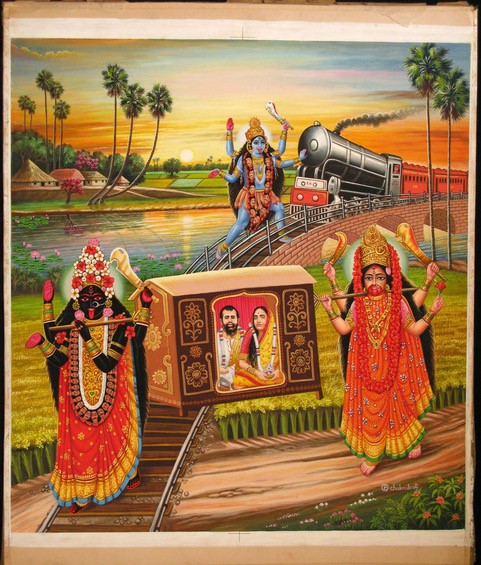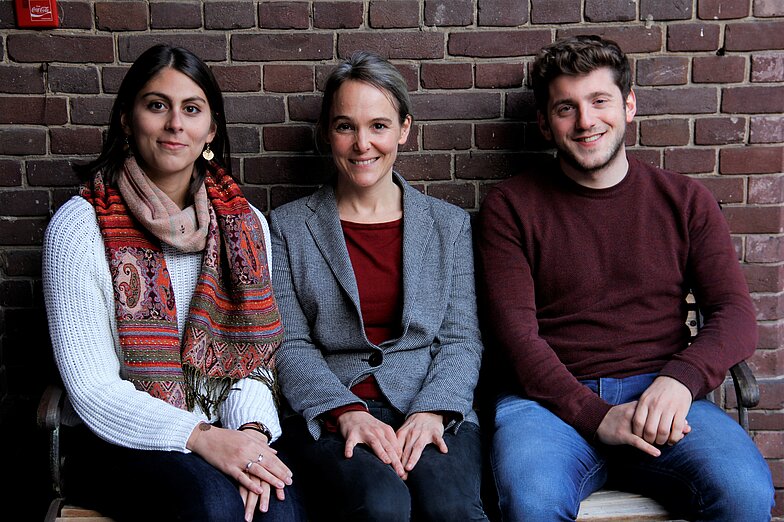Cross-Cutting, Exploratory and Supplementary Research
Timely Histories: A Social History of Time in South Asia

TIMEHIST aims to write the history of time and temporal cultures in South Asia between the 1500s and the 1950s on a practice- and process-based approach to historical pasts. Covering this broad timespan under five modular units, the objective is to investigate and write the graded pasts of shifts and transformations that occurred within the temporal cultures of South Asia. In doing so, it departs from the usual approaches that focus either on the device (clock) or modern nation-state institutions such as army, school, factory, and office. Instead, while going beyond device-centrism, it puts ‘othered’ spaces of temporal practices such as field, farm, jungle, and river in the centre of the time’s history.
This five-year research project, headed by Dr. Nitin Sinha, started in January 2021. The project has received funding from the European Union’s Horizon 2020 research and innovation programme (ERC Consolidator Grant) under grant agreement No 866421.
Historicity of Democracy in the Arab and Muslim Worlds (HISDEMAB)
This international and collaborative project seeks to establish an innovative research network that connects three institutes of the Leibniz Association (ZMO, IEG, ZZF) with two research institutions in the Arab world (Institut français du Proche-Orient (IFPO) in Amman, Jordan and Manouba University in Tunis, Tunisia), while also including guest researchers from the wider Arab and Muslim worlds. The project explores democracy and debates about democracy in the region from a historical perspective.
De:link // Re:link - Local perspectives on transregional (dis-)entanglements

The network project De:link//Re:link investigates new spatial configurations and local perspectives on transregional infrastructure projects such as the Belt and Road Initiative initiated by China in 2013. link indicates the network's focus on local insights and new knowledges.
The overarching goal of cooperation among the four partners in the consortium (ZMO, HU Berlin, ZOiS, BICC) is to strengthen a pluri-directional exchange of knowledge and shared knowledge production between and of scholars and other academic actors in Germany and the core regions of research (Africa, Asia, Europe, Eurasia, Afrasia).
Modern India in German Archives, 1706–1989 (MIDA)

The richness and the potential of the holdings of German archives on modern Indian history has been appreciated insufficiently so far. To the international community of historians of India, these resources can open up new research perspectives that have remained obstructed by an excessive fixation on British colonial archives. At the same time, innovative research questions can be generated for purposes of transnational historical comparison and for the historical analysis of "globalization" processes through an exploration of the modern history of German-Indian entanglements. Moreover, the resulting twofold widening of research perspectives creates new chances for a more intensive communication and cooperation between Indian and German traditions of historical inquiry - traditions that have taken cognizance of each other, so far, only to a very limited extent. Through the following initiatives the long-term project "Modern India in German Archives" aims to produce the necessary conditions for this substantial endeavour.
Research group "Learning Intelligence: The Exchange of Secret Service Knowledge between Germany and the Arab Middle East”

This research goup, headed by Dr. Sophia Hoffmann, analyses the exchange of secret service knowledge between German and Arab intelligence agencies between 1960 and 2010. The project is funded by a Freigeist Fellowship Grant from the Volkswagen Foundation.
Working Group: Thinkers and Theorizing from the South
The working group ‘Thinkers and theorizing from the South’ was initiated in late 2018, in order to cultivate conversations and discussions on thinkers and regional intellectual histories, and more widely on ways of thinking and theorizing the world from the perspective of ZMO’s regions of research (as part of the wider so-called ‘Global South’). Related themes are covered and discussed among ZMO colleagues, together with further Berlin-based researchers at Free University Berlin and Humboldt University of Berlin. In monthly meetings, we engage in interdisciplinary and inter-regional conversations, with a sense for the diverse (trans)regional intellectual traditions and languages, with an interest in the respective relevant key concepts, debates, genres, and arguments – all this also particularly with a view to current decolonial challenges, and to the need to redress the dominance of Eurocentrism in scholarship.
Individual Research Projects:
History of Saudi Arabia in translocal perspective
Anthropology (in the North) and Theory (from the South)
Modern Arab Intellectual Thought
Heads of the Research Unit
-
Prof. Dr. Ulrike Freitag
Direktorin
Phone: +49-(0)30-80307-0 Email: zmo(at)zmo.de -
Prof. Dr. Kai Kresse
Stellvertretender Direktor
Phone: +49-(0)30-80307-230 Email: Kai.Kresse(at)zmo.de